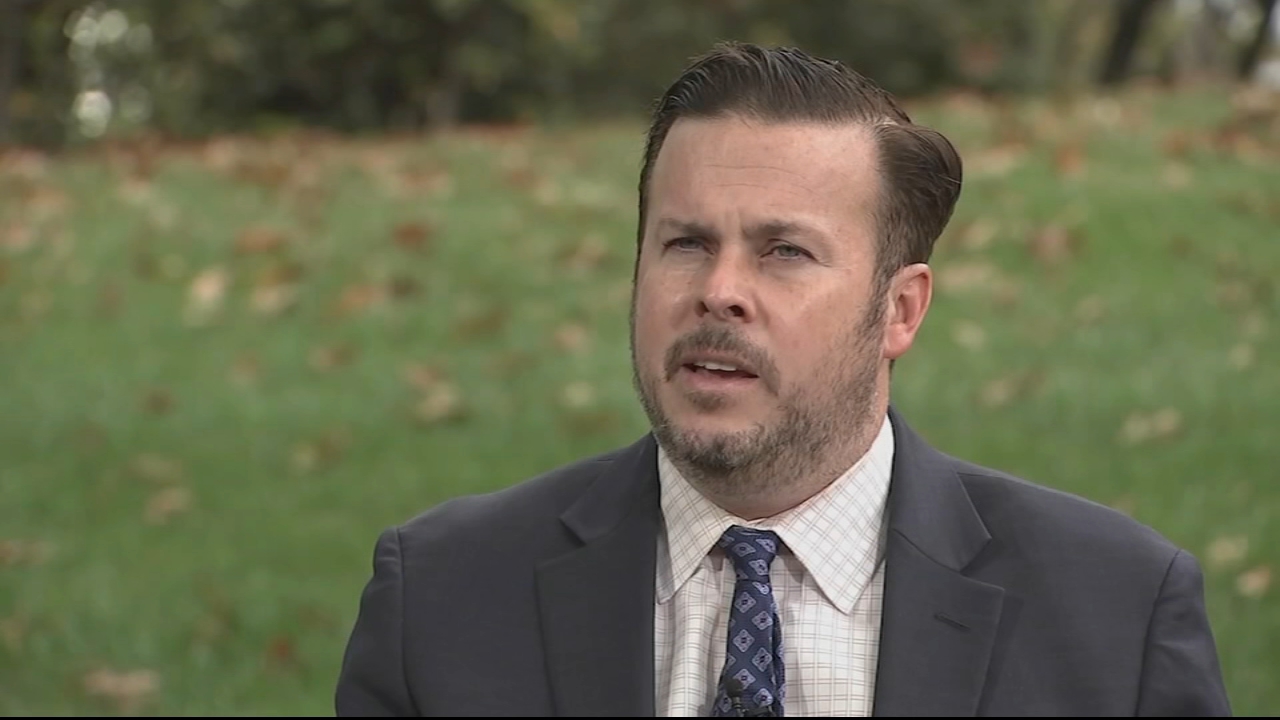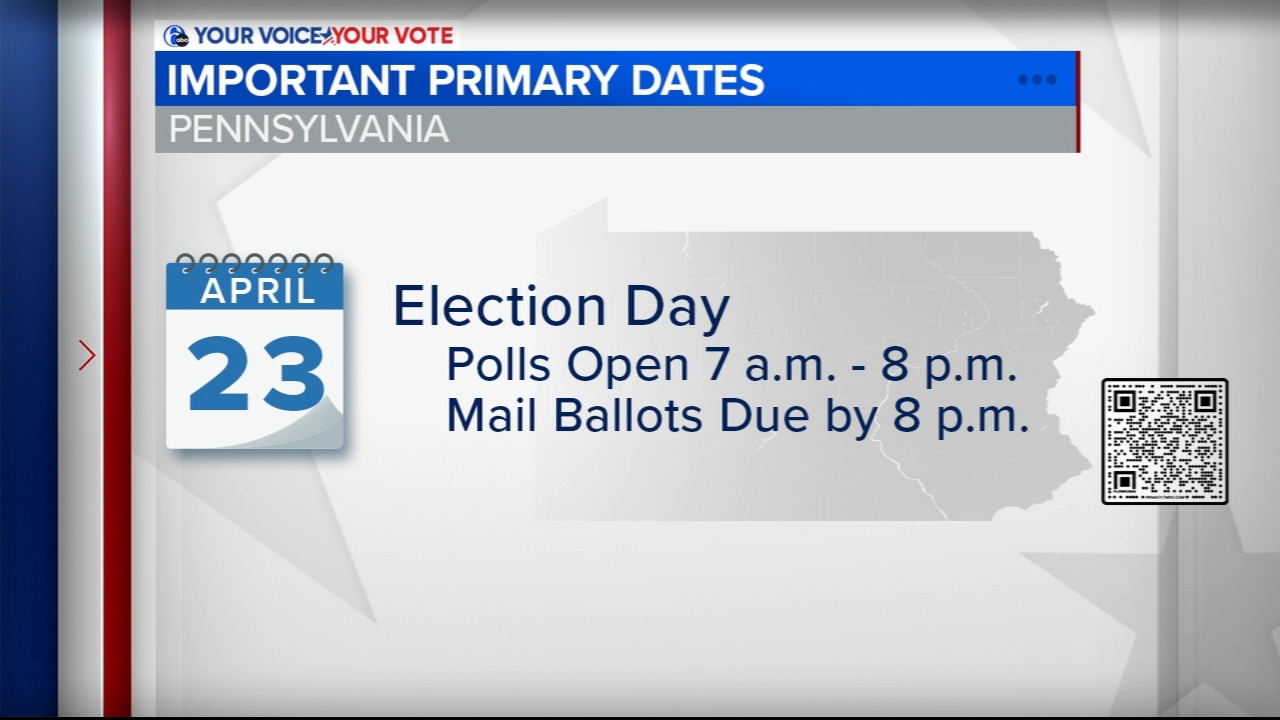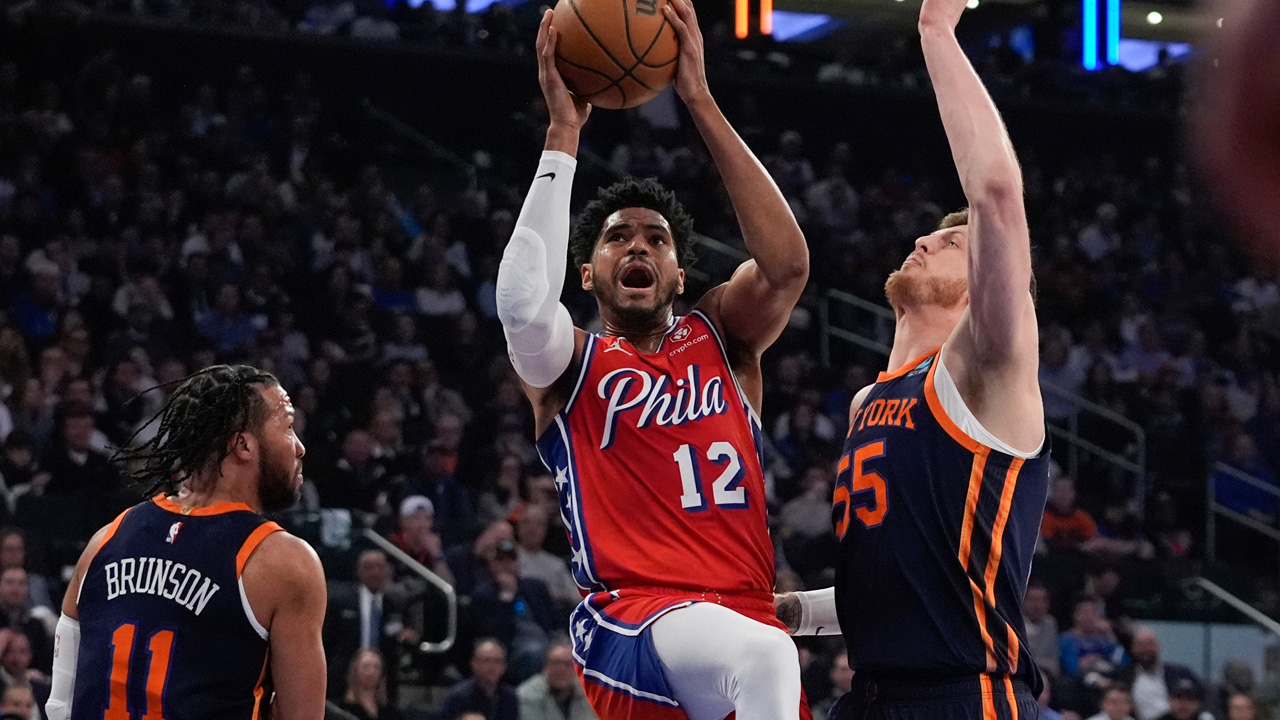Jason Collins proud of NCAA for opposing Indiana's RFRA law

INDIANAPOLIS -- Jason Collins says he is proud of the NCAA's "bold" leadership against Indiana's religious objections law and that the association should avoid putting future Final Fours in states that do not protect the rights of gays and lesbians.
Collins, the first openly gay NBA player, spoke at a news conference in downtown Indianapolis on Saturday with representatives from gay rights groups Athlete Ally and Lambda Legal. He was joined by Derrick Gordon, the first openly gay Division I men's basketball player.
The now-retired Collins said the revision of Indiana's Religious Freedom Restoration Act was an important step to decrease civil rights threats to lesbian, gay, bisexual and transgender people, but more needs to be done in Indiana to protect against discrimination.
"The NCAA, they took a bold step," Collins said. "I think bold leadership is what's needed. I'm very proud of the NCAA taking such a stance, and moving forward they definitely need to make sure the fans, the teams, the players, everyone involved with sporting events, when they go to these venues, when they go to these states, these cities, that all members of the community are protected by the laws there.
"The sports world is watching."
The men's Final Four is being held in at Lucas Oil Stadium in Indianapolis this weekend, not far from NCAA headquarters.
Hundreds of people calling for Indiana to add protections for gays and lesbians to state civil rights laws marched through downtown Indianapolis, drawing the attention of fans attending the basketball tournament.
March organizer Dominic Dorsey II began Saturday's gathering on the city's Monument Circle by leading the crowd in chanting "Hoosiers don't discriminate! No more Band-Aids masking hate!"
That chant referenced changes lawmakers made this week to Indiana's new law to address concerns that it would allow discrimination against gays and lesbians.
Dorsey told the crowd before it marched several blocks to Lucas Oil Stadium that those changes aren't enough and that lawmakers need to add protections for gays, lesbians and others to Indiana's civil rights laws.
The NCAA was among the first sports organizations to come out against RFRA and call for it to be changed. NCAA president Mark Emmert said the association would consider moving future sporting events out of the state and even relocating its offices if the Indiana law wasn't revised to its satisfaction.
Gordon, who played for Massachusetts last season but is in the process of transferring, said the NCAA's public stance should be a sign to gay athletes that it is safe for them to come out publicly while competing.
"For them to step up and do what they did, it just goes to show that we are trying to change things," said Gordon, who will be a senior next season. "I believe honestly after this a lot more college athletes should come out. Just based because you're going to have support."
Emmert and NCAA leaders acknowledged earlier this week they will need to take a closer look at similar religious objections laws in other states to see if the association should continue doing business in those places.
Ashland Johnson, director of policy and campaigns at Athlete Ally, said her group is encouraging the NCAA to work only with states and cities that have nondiscrimination laws.
"I'm really excited about what the NCAA can do here, especially in cities in the South where sports are so big," Johnson said. "They can actually have a big impact on promoting positive LBGT legislation."
Meanwhile, campaigns to win broader antidiscrimination protections for gays and lesbians are getting a boost in several states from the national focus on new religious objections laws in Indiana and Arkansas.
As Indiana and Arkansas reworked laws amid criticism from leading businesses such as Apple and Wal-Mart, the Republican governors of Michigan and North Dakota both urged their legislatures to extend discrimination protections to gays.
The American Civil Liberties Union says 29 states don't include sexual orientation in their nondiscrimination laws.
Gay-rights activists in both Arkansas and Indiana hope to build support for such a move in their states. Indiana Equality Action co-founder Kathy Sarris said they aren't going to let lawmakers off the hot seat.
The Associated Press contributed to this report.




